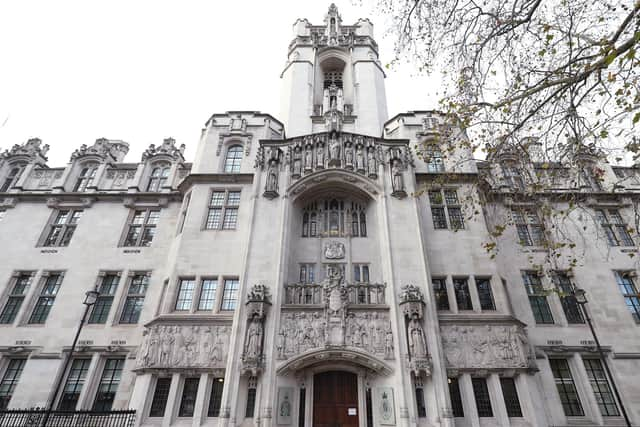Should Shamima Begum have been allowed to return to the UK? We examine both sides of the argument


The case for her return
She was tempted into ISIS by the influencers whose role was to lure the gullible in, what promises or ideals were rationalised to justify the decision only she can truly know. She was a child, under the legal age of contractual consent. Did she truly understand what she was doing? As a child, did she have the mental capacity to understand the implications of her actions? She was groomed by men proficient at radicalisation. She was a victim before she was a criminal.
She should never have been able to leave in the first place, failings of care, failings of support, failings of education and failings of the security at the airport enabled her to take this terrible path. The systems designed to protect her, and all of us, failed her. Those same systems are continuing to fail her even today.


Advertisement
Hide AdAdvertisement
Hide AdBarring her from returning to the UK prevents her from being able to defend her human rights. If we are to claim a position of law, justice, and truth, we must accept her return in order to test the situation in our courts of law.
Truth and reconciliation are only possible when moderated by a process that recognises both sides. Maya Foa, the director of Reprieve, said barring Begum allowed the UK to avoid responsibility. The UK should accept responsibility for the judicial process and allow it to happen in accordance with UK law on UK territory.
And remember, she is a victim of online radicalisation. She has suffered tremendous personal loss – her three dead children and the loss of her home country - and is now indefinitely stuck in a camp in a foreign land. At what point do we consider her to have suffered sufficiently to deserve our compassion? Are we intent on forever punishing her? What does that say about us, as a nation of supposedly caring individuals and establishments?
She did leave the UK and did turn her back on our way of life. She made a terrible and appalling mistake and undoubtedly deeply regrets it. But she was young, fooling, impressionable, and under the influence of malign individuals and ideologies that she stood little chance of resisting. She is not the same person that set off on the journey.
Advertisement
Hide AdAdvertisement
Hide AdAs the better people, the more educated, more enlightened, is it not for us to make the first move and allow her the opportunity at least to present herself before us, and be represented in the correct way?
Is it beyond our capacity as better people to offer her a second chance? Or even just a chance at a second chance?
Don’t we all deserve that?
The case against her return
She joined ISIS knowing they stood for death and terror and inhumanity. She became one of them, an alleged enforcer of strict Shariah law on other women and children. Was the power of being able to terrify others an activity she enjoyed? We don't know what she really thinks and feels.
It is alleged she is a perpetrator of serious crimes against other women and has inflicted personal suffering on others. She knowingly joined a war against the UK and against humanity and human rights. Now she wants to claim her own human rights to return here? Why? Because her side lost.
Advertisement
Hide AdAdvertisement
Hide AdShe has been accused of acts that could be called crimes against humanity. Has she admitted these, accepted these? Does she still try to protect herself from the consequences of her own actions against others? She's still only concerned with herself, and her rights.
Allowing her to appeal from within the UK would create a de facto citizenship, as well as immediate and obvious issues of housing and security. The only passable answer to that would be a prison or detention centre, but based on what criteria, and for how long? And with the added complications of security and quarantine. Then if the appeal fails, where to deport her to? And again, more appeals, and more legal entanglements, the longer she is here the more likely she is to stay. Once here she would, almost inevitably, remain here, probably in some highly legalised limbo of no man's land. Her lawyers know this and would be defending her for decades. It would cost millions. And she would be an encouragement to others radicalised by the same ideology and an indefinite threat to UK security.
She needs to confess her crimes, or refute them in court. If there is a way back to the UK it’s as an accused on trial. She should accept her responsibility as perpetrator and willing participant, and she should openly renounce the beliefs that lead her there. Before she can expect forgiveness she has to confess her mistakes. Before she can be allowed back to the UK she needs to understand the UK owes her nothing, and it is her that owes the UK, and beyond, a deep and meaningful apology. That has to be the first stage of the process.
Support The Yorkshire Post and become a subscriber today. Your subscription will help us to continue to bring quality news to the people of Yorkshire. In return, you’ll see fewer ads on site, get free access to our app and receive exclusive members-only offers. Click here to subscribe.